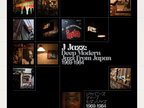・モダン・ジャズ・オペラ 桃太郎・Modern Jazz Opera • Dedicated to Kansai Yamamoto • mrjyn (@mrjyn) 2020年7月27日 regards to Marc Jacobs
・モダン・ジャズ・オペラ 桃太郎・Modern Jazz Opera • Dedicated to Kansai Yamamoto • mrjyn (@mrjyn) 2020年7月27日 regards to Marc Jacobs - Deep Modern Jazz from Japan 1969-1984 | Various Artists | BBE
VIDEO
KELTS: The first part of
the story goes like this. There’s a poor old couple. They can’t have kids. One day, a giant peach floats down the river to their village. The old couple take the peach home and try to eat it. They sing Thelonius Monk’s Misterioso. But before you have a chance to consider what might be going on, they move on to Miles Davis. Superficially the video, which runs to about ten minutes, is just spectacularly odd. But still, what IS it? Only in the video it’s sung by an old peasant couple, with Japanese lyrics. The setting is a kind of studio version of an olden-days Japanese village. They seem to be actors in some kind of elaborate comedy skit. KELTS: “In Japan, this guy Tamori, the comedian behind this video, this show,
is everywhere, he’s ubiquitous.” VIDEO J VIDEO
Sury And
maybe the United States can relate to that feeling… a feeling that
something’s been lost: that carefree sense of being on top of the world. Senses: so we know it’s a skit
starring one of Japan’s biggest celebrities. KELTS: “If you can
imagine someone… posters… beer… that you see on TV every night in
Japan.” And this video clip, Kelts says, comes from Tamori’s nightly
variety show, an edition from March 1986. It was called Kelts recognizes the subject of the skit too. Turns out it’s a take on Momotaro, or the Peach Boy But Roland Kelts says that for younger Japanese today, the only thing they’d understand would be the story. Today their focus is domestic not international — in music and in other things. Kelts: “It’s a symbol or a sign of how pessimistic younger Japanese feel. Tamori’s generation, Your real estate holding would grow in value, forever. Some people said back then we’d all work for a Japanese company. It seems absurd now. So did the video when I first watched it. But it turns out to be much more than anonymous Japanese TV comedians singing jazz tunes in peasant costumes. It’s really a historical document of a Japanese attitude — one that’s slipping away.
